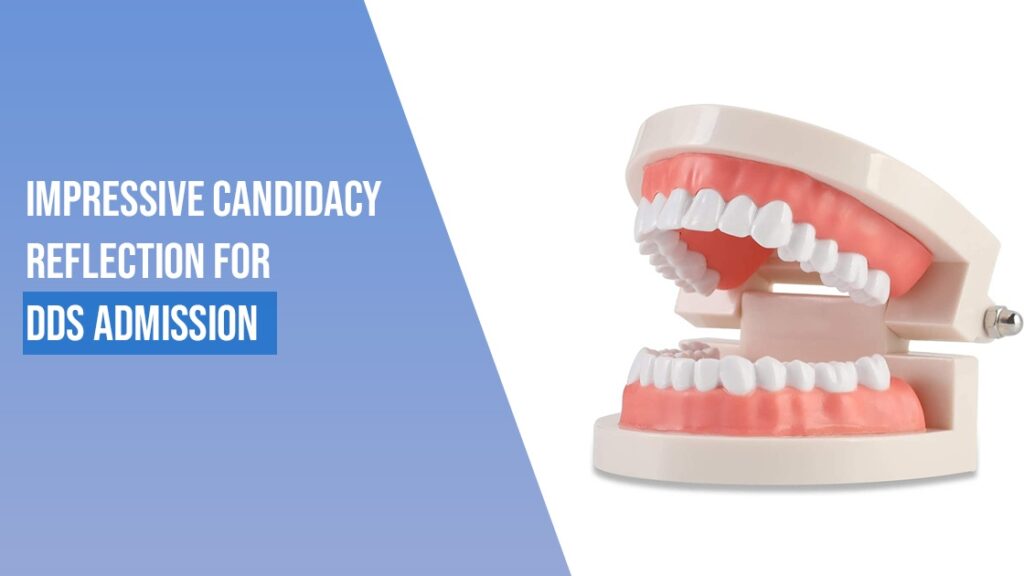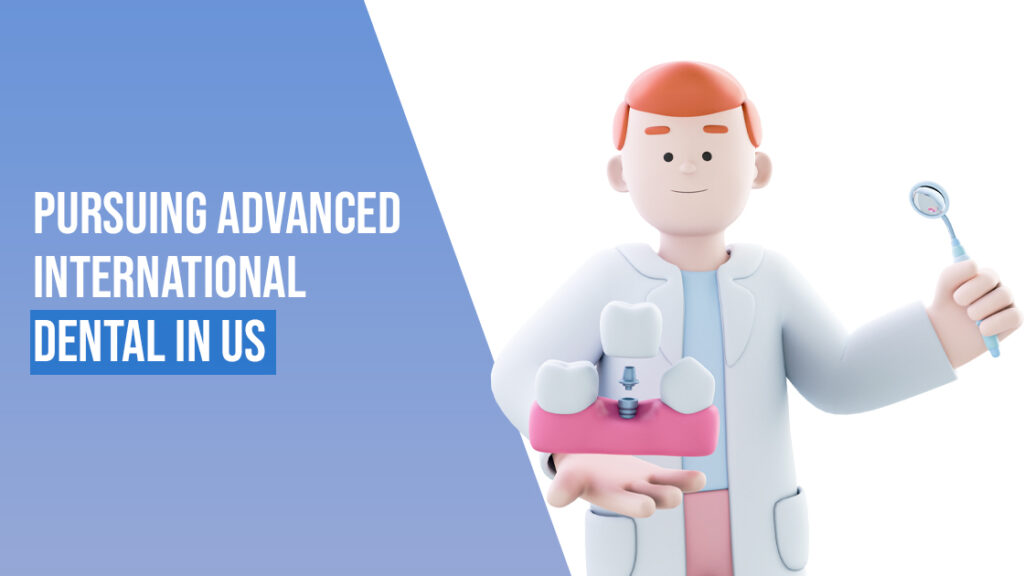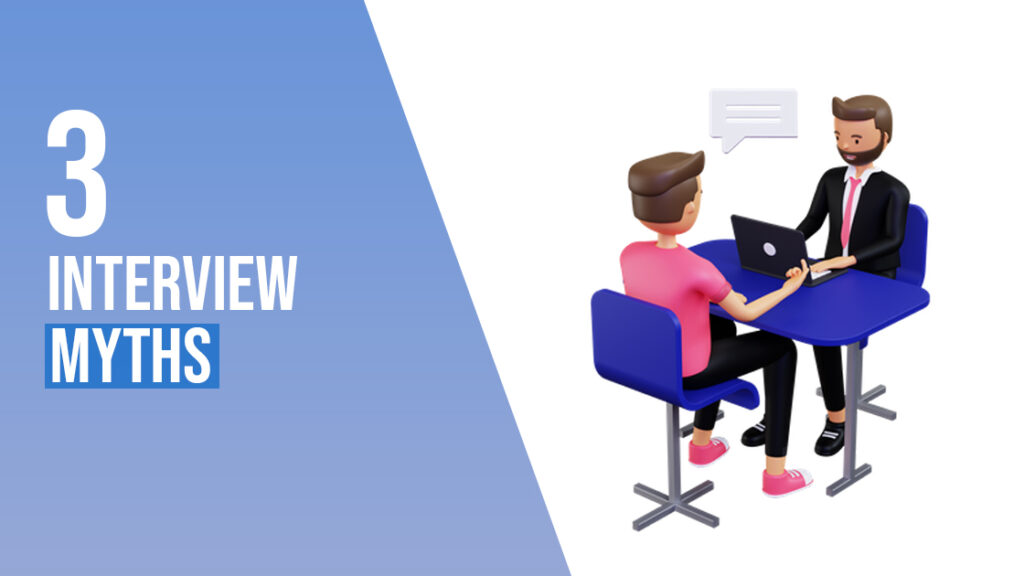Dental Interviews aren’t easy. Ambiguity complicates everything. Willfully subject oneself to an hour or more of judgment leaves many of us uncomfortable.
Dr. Nourah Abdul Kader, my wife, and co-founder of CAAPID Simplified, wasn’t nervous when she landed her first and only Dental Interview at Dental School in 2018. At Colorado University, she was the first candidate to be interviewed and spoke confidently for over 45 minutes to her panel.
Having reviewed at least 100 questions from different question lists, Nourah had an entire book with scripted answers for the almost every permutation of every Dental Interview question. Her answers were rehearsed to the extent they became muscle memory for her.
Yet, in spite of all this, she failed at her first Dental Interview. Failure made her nervous for the first time ever.
If the panel wasn’t impressed by what she considered her best effort, how would she sustain confidence in herself? If her best effort didn’t yield results, then where must she head next in her preparations? This isn’t just her story but the story of many more international dentists applying to dental schools in the US.
How do you prepare for your Dental Interview in a way that helps you leave such a powerful impression on the admissions committee that they’re able to look past the rest of the applicant pool and hold onto you? There are just three steps to achieving this
- Gather
- Strike
- Converse
At Caapid Simplified, we call this the GCS framework (Gather, Strike, Converse). Let’s unpack them one by one in this blog article.
The first step is to Gather. The gathering is analogous to preparation. To prepare, you need to collate or collect a couple of resources. You will need a master question list, a personalized answer list, a feedback mechanism, and a simulation environment.
- Question List: We’ve made it easy for you by sharing as many questions as we can in the blog article below
- Answer List: This is something we encourage you to prepare as a bullet point list, capturing key ideas you wish to articulate when asked questions in an interview
- Feedback Mechanism: You will need a dental professional or former admissions panelist to review your answer, and suggest if they’ll impact your actual evaluator
- Simulation Environment: Either through mock tests or through live interactions, you will need to bring the written word to eloquent speech within a certain time
Here is a question list to help with your interview preparation. I’ve chosen to bucket them into different categories so that you can leverage different strategies to answer each of them.
Types of questions asked at Dental Interviews
Most dental interviews, whether they are evaluating you for the DDS program or a Residency program, fall into one of five categories as described here
- Behavioral Questions
- Questions that assess your ‘fit with the school’
- Questions that assess your ‘critical thinking ability
- Clinical questions
- Questions that test your approach to ‘ethically conflicting’ situations
- Questions related to ‘treatment planning
- General definitive questions
- Questions that are intended to ‘break the ice’ and spur conversation to assess your social skills
- Questions like ‘Tell me about yourself are used to learn about your personality and experiences that have shaped your character
- Profile-based questions
- Questions like ‘Why do you have a gap year’ or ‘Why do you have 3 attempts in the entrance test’ that are meant to distill your profile
- Curveball questions
- Questions that come up unexpectedly after your conversation with the interviewer spark a memory within them, and they wish to clarify.
- Questions that come up because the interviewer suspects a contradiction between different answers you’ve mentioned or notices an inconsistency between your values and your action
Let’s look at sample questions in each of these categories.
1. What are some behavioral questions for Dental Interview?
- Why do you wish to study at our school?
- How did you adapt to moving from your home country to the US Dental office?
- Can you tell me a bit about your past dental school?
- Which book/person/incident inspired you?
- Share with us a challenging situation you faced and how you overcame it?
- What are your strengths? How do you sustain it?
- What are your weaknesses? How do you plan to overcome it?
- Can you tell us about an incident that showcases your leadership skills?
- Tell us about a time when you worked as a team.
- Tell us about a time you failed.
- How would a friend describe you?
- How will you manage the pressure in the DDS program?
The questions mentioned in this section attempt to assess your fit with the school. Remember that ‘fit’ is a two-way road, meaning it is not just about whether you would align with the expectations and culture of the school, but the reverse applies as well. Begin your answers by saying what you expect from your dream school. It is a great way to earn acceptance and help an interviewer see why you’re a good fit.
Here is a sample question and answer
How did you adapt to moving from your home country?
When I thought about career growth, I wanted to go someplace that would challenge my skills and strengthen my character but was also wildly unfamiliar. Among the options I had back then, a dental career in the US seemed the best fit for that ambition. Ambition displaced fear and helped get to this country. I was prepared to engage the community based on my preparation in literature and pop culture, but I had a welcome shock. This might sound a bit naive, but immigrants build their perception of America based on the press and media, and only after we travel here do we realize that America is no Hollywood! A midwestern agricultural town is more different from the life of a Hollywood commoner than an urban family in my country. I had to learn to understand an American accent, accept the idea of small talk as a means of networking, appreciate the diversity in this country, and adapt to the culture of abundance here. It was an uphill task but not a battle. It was probably my ambition and the kindness of the dentists I met after landing here that guided me along. While I believe I’ve managed the cultural adaptations to our patient communities here, I look forward to picking up the clinical adaptations required to serve them when I join your program.
2. What are some critical thinking questions for Dental Interview?
- If you were a tree, what tree would you be? What’s your spirit animal?
- Would you choose to be unique and hated or ordinary and loved?
- What do you think about atheism?
- Does empathy matter, or does sympathy matter?
- How were you to decide between being assertive and authoritative?
- What is the biggest problem affecting modern dentistry?
- When is the right time to give up?
- If your life partner opposed your goal to be a dentist, what would you do?
- What kind of person do you dislike?
The questions mentioned in this section are meant to test your ability to think critically. As a dental school applicant, you can interpret the meaning of critical thinking as the ability to showcase three distinct qualities.
- Do you have an opinion?
- Is your opinion grounded in facts?
- Can you empathize with a counter-opinion?
It is crucial you are able to articulate in your answer these three qualities. To have an opinion shows you can move past analysis paralysis and come to a decision swiftly. To leverage facts and evidence to form that opinions, show your research mentality – do you look for information in credible places, analyze the different pieces, and look for trends rather than outliers? Finally, are you open to being opposed? Do you have the courage and empathy to accept an idea that is contrary to your opinion and learn to disagree but commit if the situation demands it?
Here is a sample question and answer
Does empathy matter, or does sympathy matter?
Omg, that is a difficult question. I hope my choosing sides won’t offend anyone. I believe empathy matters more. Let me explain why I think so. I believe people sympathize with another human when they are at a better level of wealth than others. This could be financial wealth, even good health, or better work-life balance (any kinda wealth). We’ve seen examples of this when people sympathize with others in moments of grief if situations of poverty or war. While sympathy can stimulate action and allow people to connect and support each other, it always doesn’t bring balance. The person exercising sympathy inadvertently develops a sense of superiority when lending a hand or an ear to the suffering person. Empathy, on the other hand, is an equalizer. You accept the other person as they are. Because of where they come from and the circumstances that have molded them, you don’t necessarily hold them on a pedestal and consider them inferior. Empathy is also different because it accommodates contradictions. You would only sympathize with someone whose pain you would relate with, but empathy enables you to understand pain or pleasure in a fellow human you may have never experienced. While I believe empathy is better, I am not tied to this opinion, and as a means of exercising my empathy, I’d highly appreciate if you could share your thoughts on this topic.
3. What are some ethical scenario questions asked in dental interviews?
- What would you do if a patient’s insurance won’t allow a specific treatment plan that you believe is best given the situation?
- If a patient comes inebriated to your office, how will you handle her?
- What will you do if you find your best friend indulging in malpractice and breaking the honor code of conduct?
- What will you do if a friend drops a mouth mirror on the floor, picks it back up, and uses it without sterilization?
- How do you navigate the ethical dilemma you have encountered in life?
- Can you describe an ethical scenario outside of healthcare?
- A patient requests the replacement of a perfect amalgam filling because another dentist advised that it is toxic. He asks you for advice. How would you proceed?
- The patient reports for the first time. You see poorly done restorations. How will you approach this case?
- There is a soccer match on Tuesday night and a cricket match on Thursday. As the class representative, you must decide to schedule an exam on either Wednesday or Friday. Which day would you choose?
- A friend wants to drop out of dental school because of excessive pressure. How will you help this situation?
3.a. Sample clinical questions that involve treatment planning in dental interviews:
Treatment planning questions are subject to the case ppt or radiograph you are presented.
- What anomaly do you observe in this radiograph?
- How would you treat this case?
- What are your systemic concerns for this patient?
- Can you describe ICDAS?
- What is your treatment philosophy?
- Specific case-based questions and questions on treatment planning
3. b. Sample mandatory questions that are asked in Dental Interview:
- Tell me about yourself
- How was your day? Did you look around the city? Was your travel comfortable? [Ice breaker questions]
4. Sample ‘curve-ball’ or stunner questions during ADEA CAAPID’s top school interviews:
- Is dentistry a privilege or a right?
- How would you convince me to do something I don’t want to do?
- Do you think it’s fair that some dentists have the ‘green-card advantage while applying to dental schools?
- What would you do with a magic wand? If you had the power to change something in the world, what would that be?
- What do you hate about dentistry? What can our school improve?
- What is one reason we should NOT choose you?
Work experience-based interview questions
5. a. Sample profile base questions that international dentists face in interviews:
- What key differences have you observed between the dental practices of the US and your home country?
- What key lessons did you learn while you practiced in your home country?
- Why did you volunteer at ‘this’ particular organization for community service?
- Do you have experience going on mission trips?
- How would you rate your clinical skills on a scale of 1-10?
- Describe your past dental school experience for us? What are its strengths and weaknesses?
- Who are the other authors in this published article?
- Why did you choose to pursue these particular research topics? What part did you play on the research team?
- How do you think your research experience contributed to your clinical practice? Do you wish to continue research during your DDS program?
- What do you hope to gain from a US dental education?
5. b. Sample profile-based questions that are critiquing your ‘pitfalls’:
- Why is there a gap in your work experience?
- Why is your GPA low?
- Why did you fail in previous attempts of NBDE (National Board of Dental Examination)?
- What do attempts TOEFL tell us about your communication skills? Why didn’t you reapply to improve your score?
- Have you applied to dental school before this? Which other schools have you applied to?
- Why did you NOT pursue a master’s degree?
- Why did you do a master’s degree? Why did you do an MPH (Master in Public Health) or MHA (Masters in Health Administration)?
- Have you done any preceptorships? Why did you do that?
Section 1 – Category Descriptions:
In this section, let’s break down and understand each dental interview question category. We will describe what the interviewers’ expectations are common to all questions within a category. You will also find links to other articles that provide answering strategies and frameworks to help you succeed
What do interviewers expect when they ask behavioral interview questions?
Before we start describing what behavioral questions aim to test, let us understand what they are not testing. They are not testing your communication skills, your sense of judgment, your background, your credentials, or even quite literally your behavior in isolation. While these are necessary elements to compose your answer, they don’t satisfy these questions’ intention.
Confusing right! Well, don’t worry. We can quickly grasp their purpose using just one word – ‘fit’.
What is fit? Oxford Merriam dictionary describes it as ‘acceptable from a particular viewpoint’. That is pretty apt. So, what is the interviewers’ particular viewpoint we are trying to uncover?
Simple. The admissions committee wants to choose a candidate who will succeed in their program in the near term. Who do you think can succeed in these dental programs? Think about the characteristic traits someone needs to exhibit as a showcase of future potential. You are expected to describe evidence that is a testament to the characteristics required to succeed when answering behavioral questions.
For example, international dentists who enter the DDS classroom are expected to merge with US dental students in the 4th year of their training. In a very short time, one has to learn about the US work culture, unlearn then relearn the local treatment protocol and patient interaction standards. On average, a foreign dental candidate is more experienced compared to a local student in the program, thereby being accepted with an expectation to leverage their clinical experience and enrich classroom discussions. In essence, you are proving your ‘fit’ to be able to onboard, adapt, and manage the expectations outlined in your program through your behavioral answers.
Section 2 – More Resources for Dental Interview Preparation
Check out our YouTube Channel for videos on Dental Interviews and all other aspects of the CAAPID application process. Caapid Simplified – Youtube



Pingback: DDS Admission: Impressive Candidacy Reflection for - CS